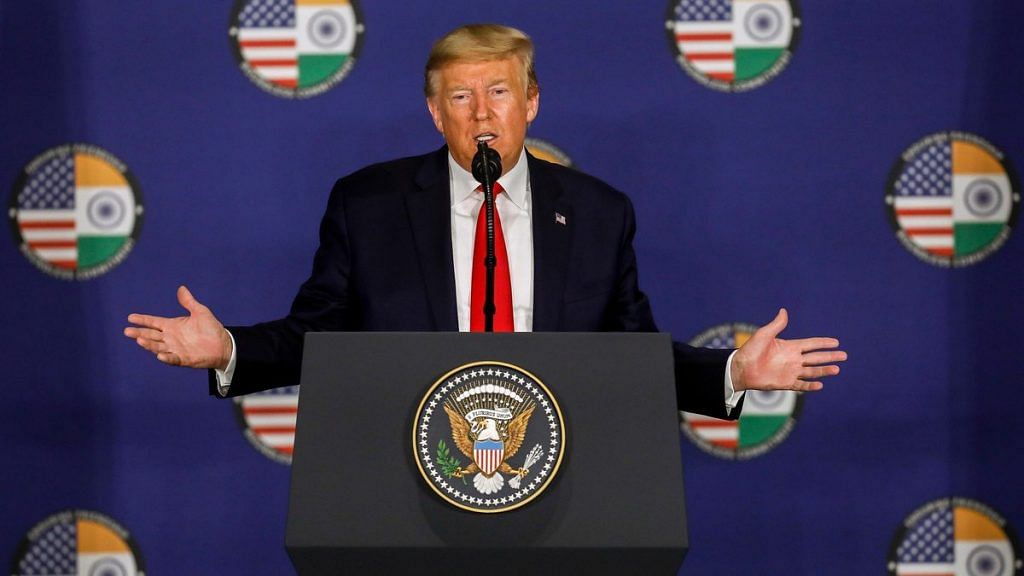It is becoming kind of fashionable to criticise the World Health Organization these days. There are many Indians who have joined the US President Donald Trump in calling Tedros Adhanom Ghebreyesus, the director-general of WHO, an incompetent, shady Chinese proxy in the current coronavirus crisis. But Trump’s decision to cut funding to the WHO will only hurt India.
Criticism of Tedros should be insulated from undermining an organisation like the WHO, which still plays a key role in countries like India.
Making the WHO go bankrupt in the middle of a pandemic would mean that India will have no sense of best global practices while responding to public health crises like the Covid-19. There will be no reliable source of information to vaccine developments or international data.
It is tempting for some in India to brush away multilateral organisations, like Donald Trump is doing. But we are not the United States, and our public health system is still creaky and beleaguered with a myriad annual outbreaks.
Going beyond the current pandemic, India consistently performs poorly across various health indices and is often at the cusp of outbreaks such as encephalitis or measles. According to the Integrated Disease Surveillance Programme (IDSP), there were 553 outbreaks reported in 2008, which went up to 2,679 in 2016. The WHO helps guide the states in the right direction, with its focus areas ranging from ‘communicable disease control’ and ‘universal health coverage’ to ‘health systems development’ and ‘health security and emergencies’.
Also read: Will Trump’s WHO attack hurt global health readiness or much-needed wake-up call?
India needs WHO
Whether it was the 2001 Gujarat earthquake or the 2013 Uttarakhand floods, the WHO came up with timely and detailed situation reports. Besides providing a better sense of the situation to the authorities, these information also help donors across the world coordinate their efforts.
The WHO gets its funding from two sources, membership fee payments by “assessed contributors” – based on the size of their economy and population – and voluntary payments by governments, firms, and philanthropic organisations. The US’ contribution accounted for $400 million in the WHO’s $6 billion budget for 2018-19).
If the WHO goes bankrupt right now, it would severely restrict its ability to “coordinate international efforts around issues like vaccine research, procurement of personal protective equipment (PPE) for health workers and providing technical assistance and experts to help countries fight the pandemic,” noted an explainer in The Conversation.
The inability of WHO to carry out these tasks would have dire consequences for India — as well as other smaller countries in Africa and Asia — in dealing deal with Covid-19.
As long as Covid-19 hotspots remain spread throughout the world, it will be nearly impossible for countries like India to reopen to other countries and return to normality. More structurally, it also raises the possibility of many more future outbreaks – originating from smaller countries – that could yet again spread havoc in India.
In the longer run, such a move would ensure that states like Uttar Pradesh and Bihar will face difficulties in coming up with comprehensive plans to help improve poor maternal and newborn health since the WHO helps with new research and regular assessments of specific disease outbreaks.
Recently, the organisation worked with the union ministry of health and family welfare to come up with ‘WHO India Country Cooperation Strategy 2019–2023’ — which aims to help the Indian government achieve its health sector goals. This country-specific blueprint took into account India’s 2017 National Health Policy and talks about how to improve the outcomes of policies such as Ayushman Bharat.
Also read: Global cooperation was breaking, Trump’s attack on WHO just makes it worse
India loses power as Trump attacks global institutions
Donald Trump’s decision to cut the WHO’s funding marks a deeper and more worrying trend. It is part of a broader trend to erode the global rules-based order that the US essentially built itself in the post-war era. Since he came to power in 2017, Trump has effectively ended funding for a host of United Nations programmes, destroyed the World trade Organization (WTO) and the global trading order, and led to the weaponisation of economic interdependence.
The corrosion of such a rules-based order would mean the return of big power competition. As scholar Robert Kagan argues in The Jungle Grows Back, “when world order dies, you don’t instantly get a new one, but you live in a period of prolonged anarchy… and it marks the return of clashes between brute state powers.”
Currently, India neither has the economic and hard power nor the expertise to drive global outcomes, regardless of how much rhetorical power projection the Narendra Modi government might indulge in. So, the next time Trump thanks you for sending an order of hydroxychloroquine, request him to not cut the WHO’s funding during a pandemic.
Views are personal.
